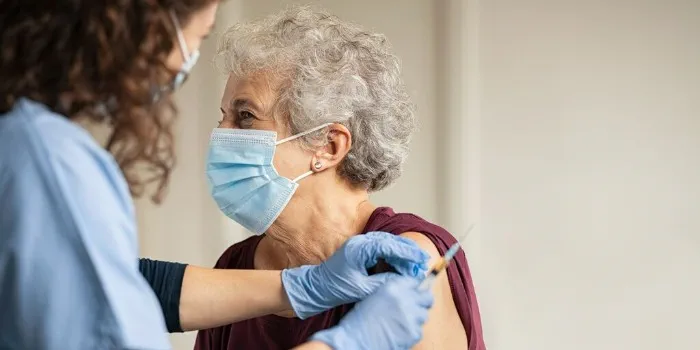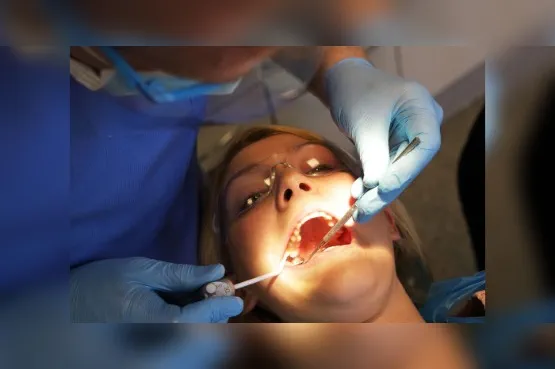What is the difference between innate and adaptive immunity?
Harmful pathogens or germs such as bacteria and viruses can get into your body and make you ill. Your immune system protects you from this. It works in two ways. One is innate immunity which is the first line of defence This includes things like your skin, mucus and stomach acid. The other is adaptive immunity which protects you from future infection. In this article, I’ll explain how innate and adaptive immunity work.

What is innate immunity?
Innate immunity is the first line of defence against pathogens. Pathogens are small organisms that cause illness such as bacteria and viruses. These are also called germs or microbes.
Innate immunity includes things like your skin that acts a barrier. The surfaces (membranes) around your lungs and gut also work to stop germs entering. There’s also mucus and stomach acid that stop germs from growing.
Tears, saliva and sweat are also involved in the innate immune response as they can wash away germs.
But if germs get past your skin and into the body, then immune systems cells will activate. These cells are white blood cells that can find and kill harmful bacteria and viruses.
For example, during inflammation white blood cells go to the site of infection. Inflammation involves redness and swelling as blood vessels become bigger and leaky. White blood cells can then arrive to destroy and remove pathogens.
What is adaptive immunity?
Adaptive immunity happens after you’ve been infected. It is also called acquired immunity. This involves special white blood cells called B cells and T cells.
T cells have a few jobs. They include killing infected cells and activating B cells. B cells produce antibodies that recognise antigens, which are on the surface of germs. The antibodies stop pathogens causing disease.
The adaptive immune system protects you from illnesses you’ve had before. You become immune to that illness. This is why you only have some illnesses once in your life, for example chickenpox.
Adaptive immunity develops naturally after disease. But you can also get this kind of immunity from vaccines.
Vaccines work by giving you an inactive or weakened virus . Your body produces antibodies to make you immune, but you don’t experience the illness.
Antibodies can also be passed on to a baby during breastfeeding or through the placenta. This is called passive immunity, which only last for a few weeks or months.
What is the difference between innate and adaptive immunity ?
Both the innate and adaptive immune system protect you from diseases.
The innate system is something you’re born with. It is also non-specific, meaning it treats all germs the same way. Adaptive immunity is something that your body learns. You get it either after being infected or from vaccines. It is also specific to a certain pathogen.
The innate system gets to work straight away to fight germs. The adaptive system is slower but provides long lasting immunity. So if you get exposed to the same pathogen, the adaptive immune system will have a quicker response. This is because it remembers the pathogen from the first time you were infected.
The innate immune system and adaptive immune system work together as well. In the innate system, immune system cells called macrophages destroy bacteria. Parts of the germ go to their surface. This is so that the adaptive immune system can detect the germ and produce antibodies for it.
What are autoimmune diseases?
The immune system is only meant to fight foreign substances. These include bacteria and viruses. But if the immune system attacks your body’s own healthy cells, this is known as an autoimmune disorder or disease.
Examples of autoimmune diseases include type 1 diabetes, rheumatoid arthritis and lupus. You might need to take medication to suppress your immune response. Because of this you may become more vulnerable to other diseases.
How can I keep my immune system healthy?
Unless you have an autoimmune disease, your immune system usually works well on its own. But there are ways you can look after your immune system. Trying to reduce stress, eating a healthy diet and keeping active might help.
It’s also important to get vaccinated. Vaccines give you immunity to certain diseases. In the UK, you may have had a series of vaccinations for common diseases when you were a baby and throughout childhood.
The flu vaccine is offered to you if you are aged 65 or over. Because the flu virus changes, if you had the flu vaccine it’s best to get it again the next year. Talk to your GP to find out what vaccinations you might need.
Are you interested in learning more about your health? Discover more about our range of health assessments.
-
Sources Sources
- In brief: The innate and adaptive immune systems. Institute for Quality and Efficiency in Health Care (IQWiG). Updated August 2023
- Definition of pathogen. The Britannica Dictionary. britannica.com, accessed May 2024
- Immunity and how vaccines work: the green book. UK Health Security Agency. gov.uk, last updated January 2021
- Innate Immunity. Molecular Biology of the Cell (4th ed, online). Garland Science
- Innate Immunity. MSD Manuals. msdmanuals.com, last reviewed February 2024
- Acquired Immunity. MSD Manuals. msdmanuals.com, last reviewed February 2024
- Autoimmune Diseases. MSD Manuals. msdmanuals.com, last reviewed December 2022
- Shields GS, Spahr CM, Slavich GM. Psychosocial Interventions and Immune System Function: A Systematic Review and Meta-analysis of Randomized Clinical Trials. JAMA Psychiatry 2020;77(10):1031-1043. doi: 10.1001/jamapsychiatry.2020.0431
- Nutrition and Immunity for Teens and Adults. British Nutrition Foundation. nutrition.org.uk, accessed May 2024
- Nieman DC, Wentz LM. The compelling link between physical activity and the body's defense system. J Sport Health Sci 2019;8(3):201-217. doi:10.1016/j.jshs.2018.09.009
- da Silveira MP, da Silva Fagundes KK, Bizuti MR et al. Physical exercise as a tool to help the immune system against COVID-19: an integrative review of the current literature. Clin Exp Med 2021;21(1):15-28. doi: 10.1007/s10238-020-00650-3
- Complete routine immunisation schedule from 1 September 2023. UK Health Security Agency. gov.uk, last updated October 2023
- The flu vaccination: who should have it and why (winter 2023 to 2024). UK Health Security Agency. gov.uk, last updated September 2023
About our health information
At Bupa we produce a wealth of free health information for you and your family. This is because we believe that trustworthy information is essential in helping you make better decisions about your health and wellbeing.
Our information has been awarded the PIF TICK for trustworthy health information. It also follows the principles of the The Information Standard.

More general health advice articles
Did you find our advice helpful?
We’d love to hear what you think. Our short survey takes just a few minutes to complete and helps us to keep improving our healthy lifestyle articles.
Legal disclaimer
This information was published by Bupa's Health Content Team and is based on reputable sources of medical evidence. It has been reviewed by appropriate medical or clinical professionals and deemed accurate on the date of review. Photos are only for illustrative purposes and do not reflect every presentation of a condition.
Any information about a treatment or procedure is generic, and does not necessarily describe that treatment or procedure as delivered by Bupa or its associated providers.
The information contained on this page and in any third party websites referred to on this page is not intended nor implied to be a substitute for professional medical advice nor is it intended to be for medical diagnosis or treatment. Third party websites are not owned or controlled by Bupa and any individual may be able to access and post messages on them. Bupa is not responsible for the content or availability of these third party websites. We do not accept advertising on this page.







